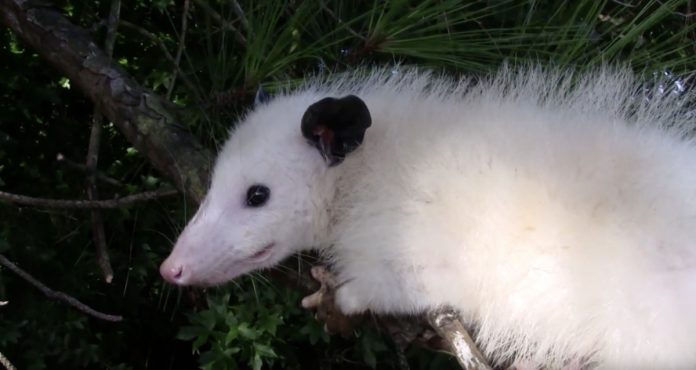The opossum is naturally immune to the venom of snakes. While an amino acid and a serum protein in the blood of the opossum were identified over 70 years go that confers the venom resistance to the animal no one has synthesized a venom treatment derived from the protein until now. Dr. Claire F. Komives the San Jose State University presented the first opossum based snake bite cure at the session of the annual meeting of the American Chemical Society.
The new antivenom is based on a single protein from the opossum. The antivenom can be synthesized chemically but the researchers indicate that a more cost effective method is producing the antivenom protein in the bacteria E. Coli. The snake bite cure was found to be 100 percent effective in mice that were bitten by the western diamondback rattlesnake and Russell’s viper from Pakistan. The two snakes have the most toxic and fastest acting venom.
The idea is to create a low cost portable snake bite cure that can be injected on site as soon after a person is bitten by a snake as possible. The International Society on Toxicology reports that over 20,000 people die every year from snake bite. Most of the deaths occur in countries that have lower incomes and fewer hospitals and physicians that are trained in treating snake bites.
An added benefit of the opossum antivenom compared to present antivenom formulations is the absence of side effects. A portable snake bite cure has the advantage of being injected directly into the snake bite at the angle of entry of the venom so a more rapid deterioration of the venom is achieved. The researchers do not know exactly how the opossum protein prevents snake venom from being effective.















